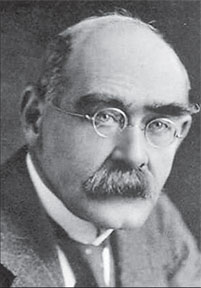Obituaries for the living!
 There is not in the
press any reading so improving as the “obits”... I doubt very much
indeed whether anyone could read obituaries every day for a year and
remain a bad man or woman. There is not in the
press any reading so improving as the “obits”... I doubt very much
indeed whether anyone could read obituaries every day for a year and
remain a bad man or woman.
-
Robert Cortes Holliday
How would you feel if you happened to read your own obituary in a
newspaper? Sad, angry or surprised? You might think such an eventuality
is a writer’s wishful thinking. Certainly not. On a few occasions, some
living people have read their own obituaries in the press.
A few weeks ago, a 35-year-old Swedish woman was shocked to find her
obituary in a local newspaper. “Our dear daughter, sister and friend has
left us today in sorrow,” the obituary in the Goteborgs - Posten
newspaper in Gothenburg said. Startled by the unexpected turn of events,
the woman wanted to call her mother, but refrained from doing so,
fearing that she would break down.
The newspaper, as usual, defended itself by saying that somebody
claiming to be the woman’s father called in the obituary and another
woman who claimed to be the victim’s sister confirmed the death over the
phone. Although it was not clear why the woman was targeted, the
newspaper editor said that in the future, no obituaries would be
accepted without a death certificate.
Victim
 |
|
Rudyard Kipling read
his own obituary |
The Swedish woman was not the first victim of such a hoax. Once
Rudyard Kipling (1865 - 1936) read his own obituary in a local
newspaper. Without losing his cool, Kipling wrote a letter to the
editor. “As you are supposed to check the veracity of every happening, I
feel the news of my death should also be correct. Hence, I have to
request you to strike off my name from the subscribers’ list of your
esteemed paper.”
An obituary, also known as an “obit” informally, is a report,
especially in a newspaper, giving the news of someone’s death and
details about their life. Modern newspapers take the precaution of
keeping potential hoaxers at bay by demanding a copy of the death
certificate. To some extent, it is a safety measure on the part of
newspapers to publish only genuine obituaries.
Human ingenuity, however, knows no bounds. Some people have the knack
of doing things in a way nobody would have imagined. A clear example is
the following obituary published in the Daily News during Sirimavo
Bandaranaike’ regime: “The death occurred under tragic circumstances of
D.E.M. O’Cracy, beloved husband of T. Ruth, loving father of L.I. Berty,
brother of Faith, Hope and Justitia. Interred on Saturday, 20th instant
at Araliya Medura, Panagiyawatte, Anduruwella.”
Creative writing
The obituary was received with a burst of admiration by readers who
had not read such a brilliant piece of creative writing for a long time.
However, the authorities took the matter seriously and decided to sack
two Lake House employees. When Dr Riley Fernando, a private
practitioner, who wrote the obituary came to know about the new
development, he promptly wrote to his friend Justice Minister Felix Dias
Bandaranaike to intervene. As Dr Fernando admitted that he was
responsible for writing the obituary, the matter ended there.
Young people hardly read obituaries. However, when they become mature
adults, they begin to read obituaries just to know whether any of their
peers have passed away. Some adults never read obituaries for fear of
death. However, when somebody dies, most people want to insert an
obituary in newspapers.
An the obituary is closely connected with someone’s death. As fear of
death is common to most of us, we hardly discuss it. Death has become a
taboo topic in most civilised societies. People often use euphemisms
such as “passed away” to avoid even the word itself. However, in Mexican
culture, death is discussed frequently and is even celebrated on a
national feast day, the Day of the Dead. The Amish too view death as a
natural transition rather than a dreaded adversary. |



